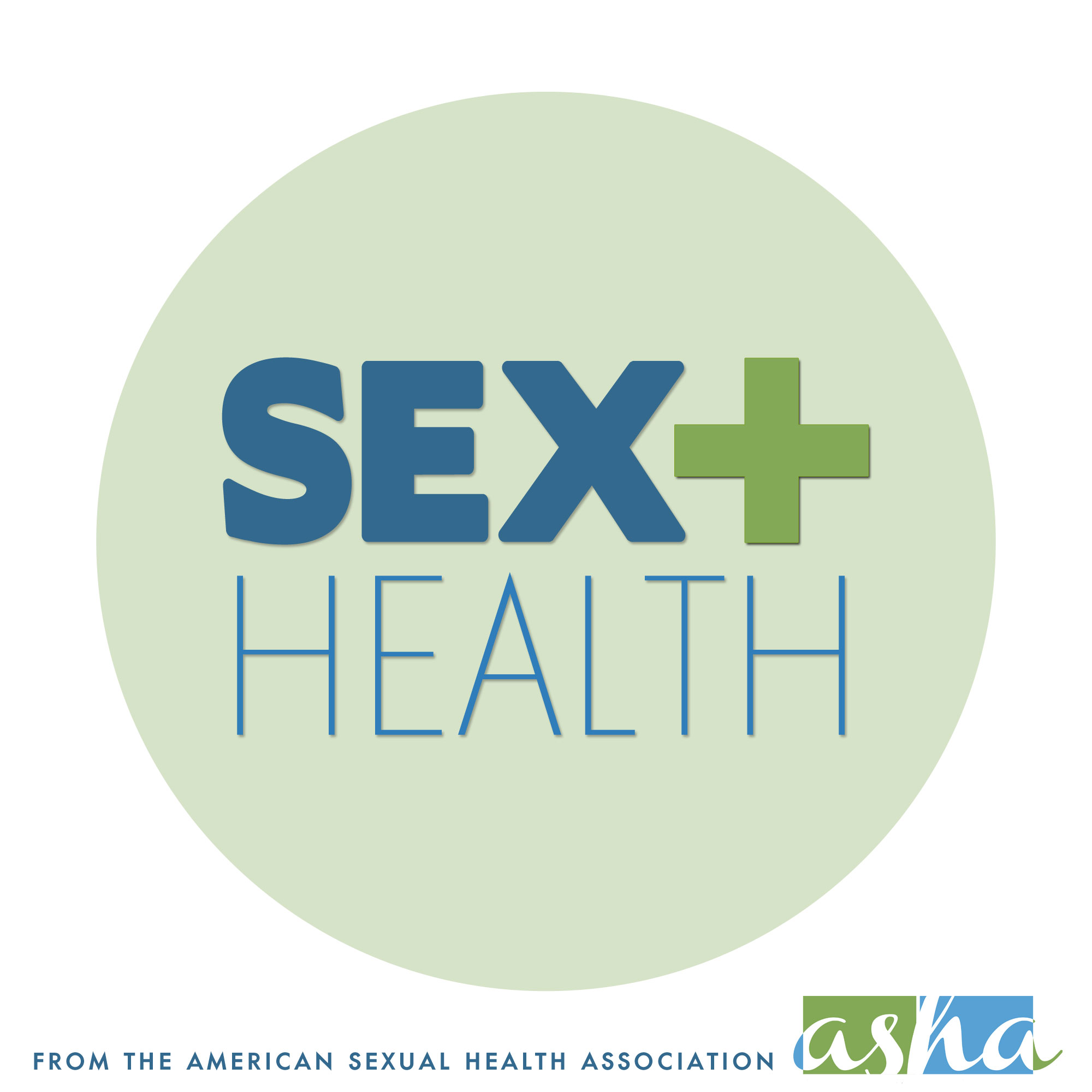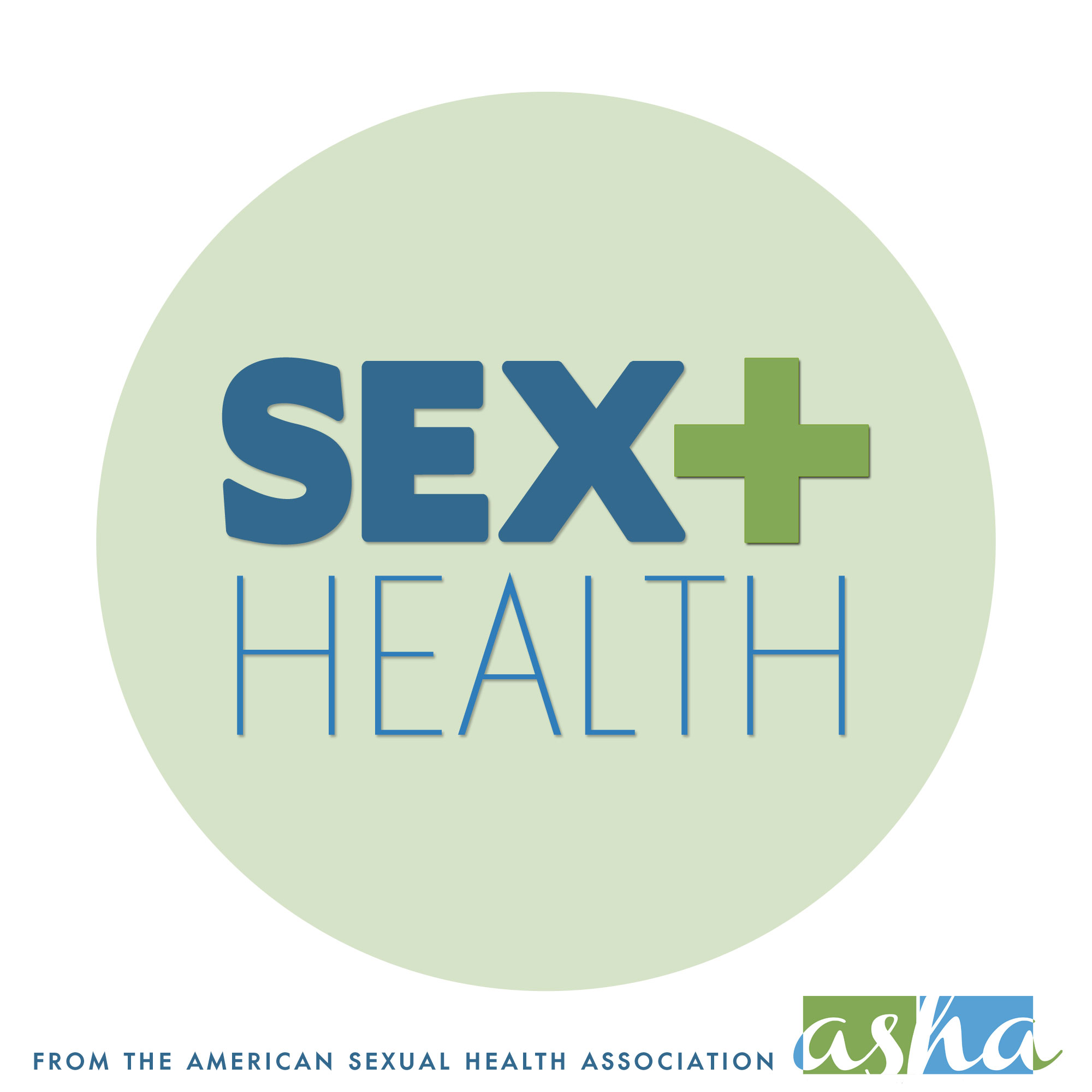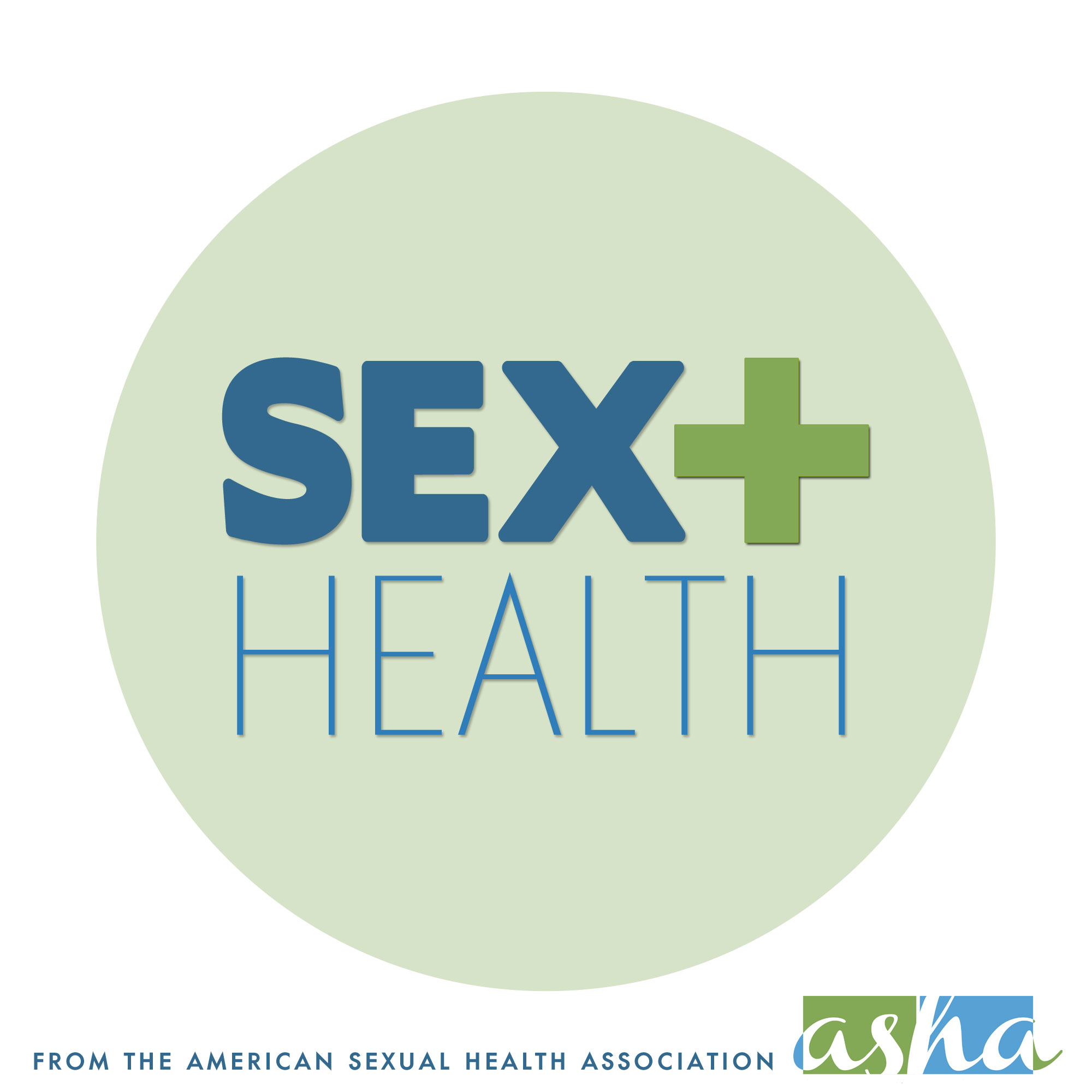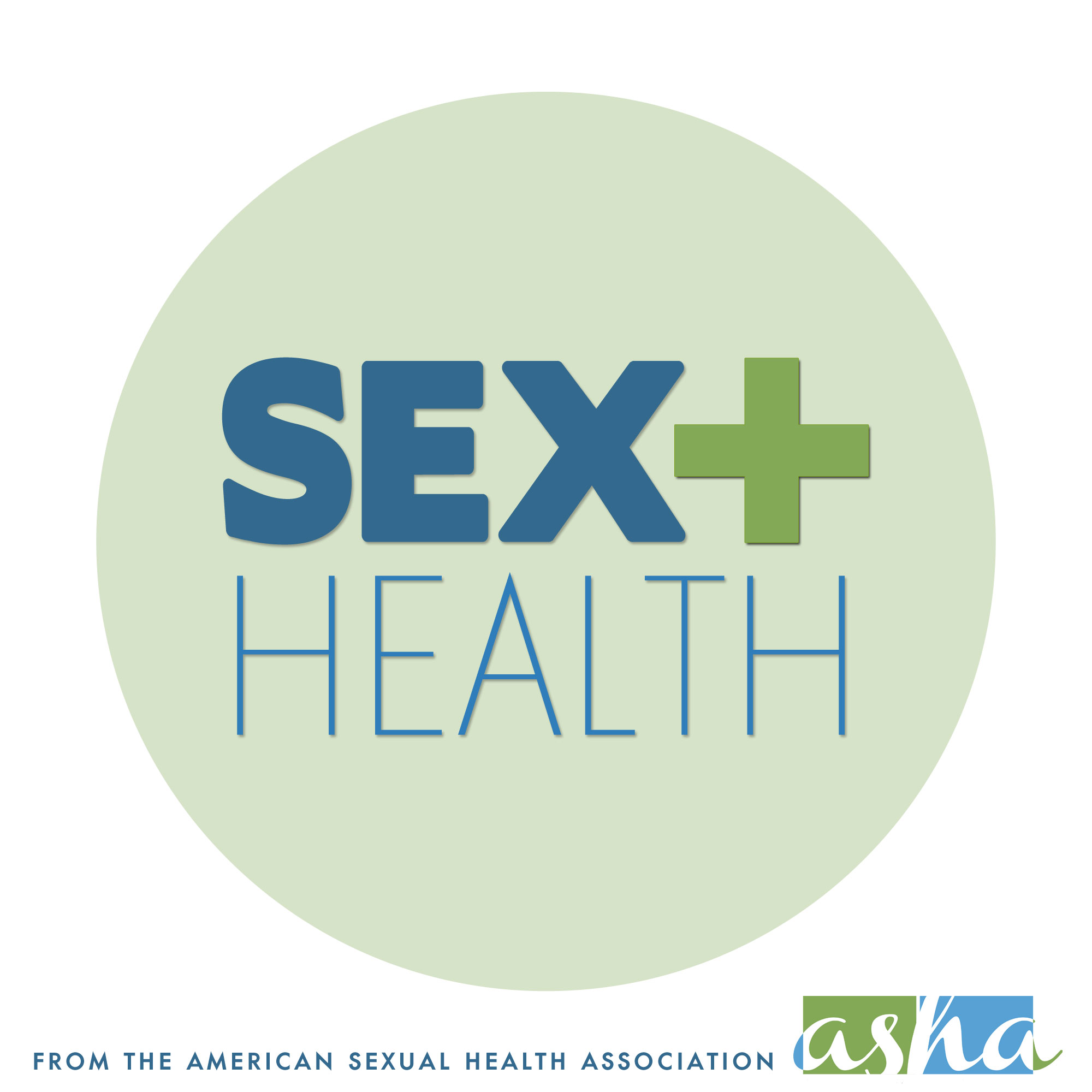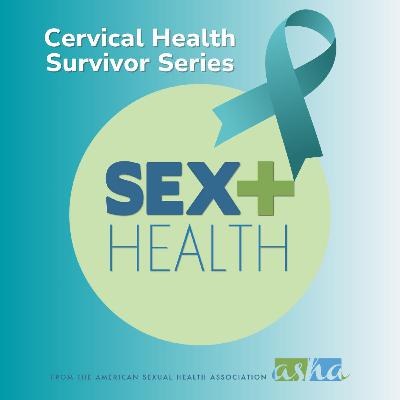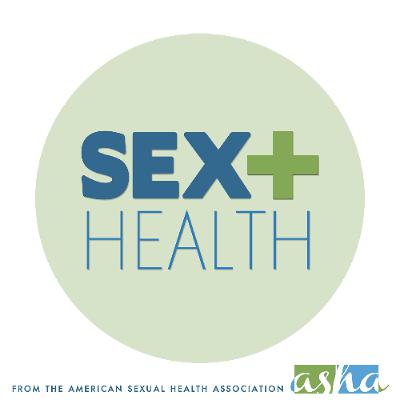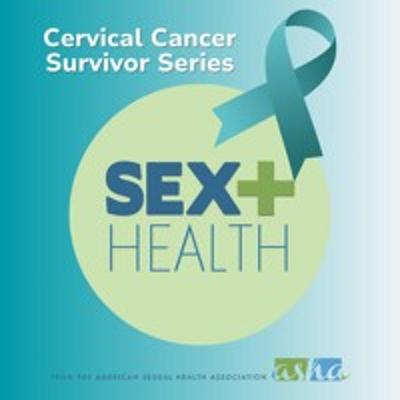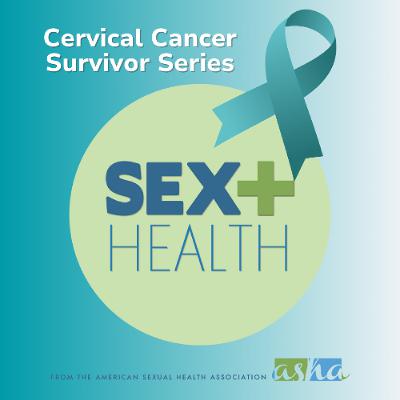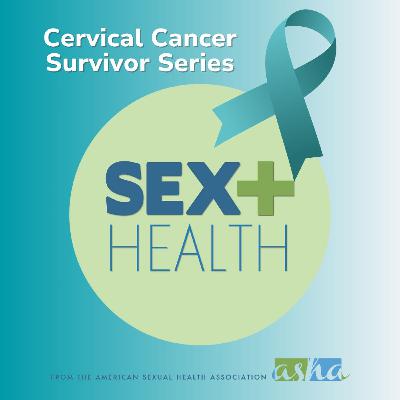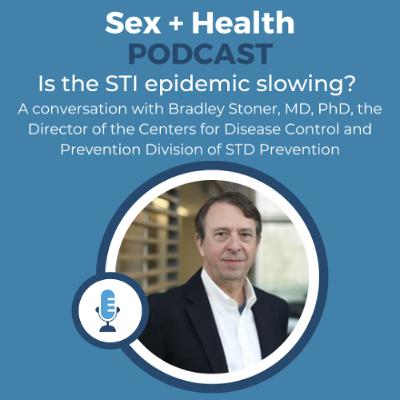Discover Sex+Health
Sex+Health

Sex+Health
Author: American Sexual Health Association
Subscribed: 409Played: 2,652Subscribe
Share
© 2025
Description
The Sex+Health podcast from the American Sexual Health Association covers all aspects of sexual health. Featuring interviews with medical professionals and experts in the field of sexuality, Sex+Health aims to offer information and resources to with the goal of helping people take charge of their sexual health and understand its importance to overall well being.
83 Episodes
Reverse
With HPV vaccination and regular screening, we have the tools we need to eliminate cervical cancer. Now we have a new tool—HPV screening with self collected samples. We invited Dr. Rebecca Perkins from Tufts University Medical School to talk about this new screening tool and its potential to help get more women screened and prevent cervical cancer. Learn more about HPV screening with self collection at ASHA or at the National Cervical Cancer Coalition (NCCC). January is Cervical Health Awareness Month. Learn more about cervical health and cancer prevention at the NCCC.
This episode focuses on the state of boys and young men, with a special look at their mental health. Give a listen to our conversation with Dennis Barbour as we discuss the challenges male youth seem to be grappling with as they navigate contemporary society. Mr. Barbour is the President and CEO of the Partnership for Male Youth, the only national organization that has a singular focus on the health and wellbeing of males ages 10 to 25. Show Notes Partnership for Male Youth National Center for Men's Health: Fast Stats
People use apps to find someone to date or hook up, nothing new there, but what about using apps to notify someone when they need to think about STI testing and prevention services? It's happening (permission based, of course), and we're exploring this today with Morgan Finke, the Communications Coordinator with Public Health Madison & Dane County in Wisconsin, and we want to talk to Morgan because HER health department is utilizing dating apps for some partner notifications. Show Notes: Public Health Madison & Dane County: Digital Partner Services Centers for Disease Control and Prevention STI Prevention Page ASHA's STIs A to Z
We've had a lot of discussions on this podcast around syphilis, especially the alarming rates of the infection in newborns, but today we're talking about syphilis and ocular (or eye) infections, in particular syphilitic uveitis, a disease affecting the uvea, the middle layer of the eye. It's not very common, but it has been increasing in recent years and can severely damage one's vision if not diagnosed and treated. To learn more, we're fortunate to be joined by Dr. Meghan Berkenstock, an associate professor of ophthalmology at the Johns Hopkins Wilmer Eye Institute where she specializes in the care of patients with uveitis. Show Notes A recent paper published by Dr. Berkenstock and colleagues: Incidence and Prevalence of Syphilitic Uveitis and Associated Ocular Complications in the TriNetX Database. CDC About Syphilis fact sheet https://www.cdc.gov/syphilis/about/index.html
Today we're talking about Native Americans and sexual health, with an emphasis on sexually transmitted infections (STIs). With any group, conversations on these topics can always come around to a discussion of culture, societal norms and expectations, and so on but there is really a great deal we can explore when talking about Native communities because of the rich diversity within this population but also the importance of Tribal sovereignty. Listen as we explore these topics with our guests from the National Indian Health Board, Lacey Wind, NIHB's Public Health Policy and Programs Director, and Audrianna "Dri" Marzette, one of the Board's Public Health Managers who has worked on STI prevention and programs with Tribal communities. Indian Health Service National Indian Health Board
Compared to the U.S. overall, Native Americans/Alaska Natives have higher rates of syphilis but the disparity is most shocking with congenital syphilis (when newborns contract the infection). What's driving these infections in Native communities, and what can we do to reverse the tide? We explore this with our guest, Meghan Curry O'Connell, a citizen of the Cherokee nation, who's a physician and the Chief Public Health Officer with the Great Plains Tribal Leaders'Health Board, which represents18 tribal communities across South Dakota, North Dakota, Nebraska, and Iowa. Show Notes: Great Plains Tribal Leaders' Health Board ASHA's Syphilis Hub CDC's Syphilis Page
Is romance dead? Is sex passé? How do we even start talking with our partners about intimacy and pleasure? Let's add a convo about STI testing and prevention to the mix, too. Who can guide us to talk about all this? Julia Fowlkes, aka Sex Ed Miss Frizzle, that's who! Join us for a humorous and informative journey with our guest, who describes herself as "Just a broad who wants to talk about the stuff no one taught us." Resources @SexEdMissFrizzle for Julia on TikTok YesMeansTest.org to find STI testing resources and prevention tips
In this episode of our doxy PEP series, we continue the conversation with Maxfield Haynes, discussing how to talk with your provider and how to know if doxy PEP is right for you. Doxy PEP—or doxycycline post-exposure prophylaxis—is a sexual health strategy that involves taking an oral antibiotic after sex to prevent chlamydia, gonorrhea, and syphilis. Doxy PEP is the first new prevention method for bacterial STIs, and many experts believe it will be an important tool in our fight against this epidemic. Learn more about doxy PEP at https://www.ashasexualhealth.org/doxy-pep-is-a-new-strategy-to-help-prevent-stis/
Doxy PEP—or doxycycline post-exposure prophylaxis—is a sexual health strategy that involves taking an oral antibiotic after sex to prevent chlamydia, gonorrhea, and syphilis. Doxy PEP is the first new prevention method for bacterial STIs, and many experts believe it will be an important tool in our fight against this epidemic. In this episode, we speak to Oscar Alexis to get the patient's perspective on doxy PEP. They share their experience, offer tips for others considering doxy PEP, and explain how they've helped educate providers about this new prevention method. Learn more about doxy PEP at https://www.ashasexualhealth.org/doxy-pep-is-a-new-strategy-to-help-prevent-stis/ Hear more from Oscar on their podcast Liquorice Chix.
In honor of Cervical Health Awareness Month, the National Cervical Cancer Coalition presents the Cervical Cancer Survivor Series. Across eight episodes, we share stories from cervical cancer survivors across the country, touching on topics including diagnosis, treatment, and survivorship, as well as advice for others whose lives are impacted by this preventable disease. We also talked to providers in the field to answer questions about screening prevention and treatment. In this final episode, we hear from all of our survivors from this series—Jen English, Shaundra Hall, Aisha McClellan, Selena Rushton, and Cheryla Thompson. We talked to them about a range of topics, including advice they've received and would offer others after a diagnosis, how family and friends can best offer support to loved ones dealing with cancer, what they would say to anyone considering the HPV vaccine, and why they decided to become involved in advocacy. 568673
In honor of Cervical Health Awareness Month, the National Cervical Cancer Coalition presents the Cervical Cancer Survivor Series. Across eight episodes, we share stories from cervical cancer survivors across the country, touching on topics including diagnosis, treatment, and survivorship, as well as advice for others whose lives are impacted by this preventable disease. We also talked to providers in the field to answer questions about screening prevention and treatment. In this episode we speak to gynecological oncologist, Brad Monk. Dr. Monk leads clinical trials and has authored or co-authored over 300 peer-reviewed publications on cervical cancer, ovarian cancer, and other gynecologic cancers and also sees patients. We talked to Dr. Monk about finding a cancer expert and possible treatment options.
There's a new way to screen for cervical cancer with self-collection. People can take a sample of cells from their own vagina to test for HPV. The FDA recently approved this for use in providers offices. There's no pelvic exam stirrups or speculum involved. Research has shown that the results are just as accurate as when samples are collected by a clinician. Self-collection has the potential to expand testing to other healthcare settings and reach underscreened populations. In this episode, we speak to Jennifer S. Smith, PhD, who has been involved in the research around HPV for decades to explain this new method to us, and how it might help us reach the goal of eliminating cervical cancer.
There's a new way to screen for cervical cancer with self-collection. People can take a sample of cells from their own vagina to test for HPV. The FDA recently approved this for use in providers offices. There's no pelvic exam stirrups or speculum involved. Research has shown that the results are just as accurate as when samples are collected by a clinician. Self-collection has the potential to expand testing to other healthcare settings and reach underscreened populations. In this episode, we speak to Barbara Moscicki, MD, who has been involved in the research around HPV for decades to explain this new method to us, and how it might help us reach the goal of eliminating cervical cancer.
In honor of Cervical Health Awareness Month, the National Cervical Cancer Coalition presents the Cervical Cancer Survivor Series. Across eight episodes, we share stories from cervical cancer survivors across the country, touching on topics including diagnosis, treatment, and survivorship, as well as advice for others whose lives are impacted by this preventable disease. We also talked to providers in the field to answer questions about screening prevention and treatment. In this episode, we speak to Aisha McClellan. Aisha went to a clinic with symptoms, and was sent home with antibiotics for an STI she didn't have. It took three visits before she was diagnosed with cervical cancer. Aisha had to be her own advocate for health care, which inspired her to become an advocate on TikTok, where she has over 25,000 followers. Follow Aisha on TikTok at https://www.tiktok.com/@aisha_the_advocate Learn more about cervical cancer prevention at the National Cervical Cancer Coalition website at www.nccc-online.org/
In honor of Cervical Health Awareness Month, the National Cervical Cancer Coalition presents the Cervical Cancer Survivor Series. Across eight episodes, we share stories from cervical cancer survivors across the country, touching on topics including diagnosis, treatment, and survivorship, as well as advice for others whose lives are impacted by this preventable disease. We also talked to providers in the field to answer questions about screening prevention and treatment. In this episode we speak to Jen English. Jen had a lot of experience in sexual health, and was comfortable talking about the topic, but she realized how much she didn't know about HPV and cervical health when she was diagnosed with early stage cervical cancer. Her experience inspired her to become an NCCC chapter leader. Learn more about Jen and her NCCC chapter. Learn more about cervical cancer prevention at the National Cervical Cancer Coalition.
In honor of Cervical Health Awareness Month, the National Cervical Cancer Coalition presents the Cervical Cancer Survivor Series. Across eight episodes, we share stories from cervical cancer survivors across the country, touching on topics including diagnosis, treatment, and survivorship, as well as advice for others whose lives are impacted by this preventable disease. We also talked to providers in the field to answer questions about screening prevention and treatment. In this episode we speak to Shaundra Hall. Shaundra tells us that her very first Pap test came back abnormal, but she still didn't know anything about cervical cancer when she was diagnosed. She also talks about how this experience changed the course of her life, both personally and professionally. To learn more about clinical trials, visit https://clinicaltrials.gov. Learn more about Shaundra and her NCCC chapter at http://www.nccc-online.org/nccc-arizona-southwest-regional/ Learn more about cervical cancer prevention at the National Cervical Cancer Coalition website at www.nccc-online.org/
In honor of Cervical Health Awareness Month, the National Cervical Cancer Coalition presents the Cervical Cancer Survivor Series. Across eight episodes, we share stories from cervical cancer survivors across the country, touching on topics including diagnosis, treatment, and survivorship, as well as advice for others whose lives are impacted by this preventable disease. We also talked to providers in the field to answer questions about screening prevention and treatment. In this episode we speak to Barbara Moscicki, a pediatrician and HPV expert. Dr. Moscicki explains cervical cancer screening in detail and helps us understand the follow-ups we may need if we have an abnormal result. She also talks about the importance of the HPV vaccine and the possibility that we could eliminate cervical cancer. Learn more about cervical cancer prevention at the National Cervical Cancer Coalition website at www.nccc-online.org/
In honor of Cervical Health Awareness Month, the National Cervical Cancer Coalition presents the Cervical Cancer Survivor Series. Across eight episodes, we share stories from cervical cancer survivors across the country, touching on topics including diagnosis, treatment, and survivorship, as well as advice for others whose lives are impacted by this preventable disease. We also talked to providers in the field to answer questions about screening prevention and treatment. In this episode we speak to Cherlya Thompson about the wonderful support she received during her cancer treatment, which took place far from home, and how that experience inspired her to help others. Cherlya also tells us about how she had to teach her grandchild's pediatrician about the importance of the HPV vaccine. Learn more about Cherlya and her NCCC chapter at http://www.nccc-online.org/nccc-south-carolina-goose/ Learn more about cervical cancer prevention at the National Cervical Cancer Coalition website at www.nccc-online.org/
In honor of Cervical Health Awareness Month, the National Cervical Cancer Coalition presents the Cervical Cancer Survivor Series. Across eight episodes, we share stories from cervical cancer survivors across the country, touching on topics including diagnosis, treatment, and survivorship, as well as advice for others whose lives are impacted by this preventable disease. We also talked to providers in the field to answer questions about screening prevention and treatment. In this episode we speak to Selena Rushton about her survivorship story, and the many complications she experienced during her treatment. After her cancer returned. Selina was told she only had months to live. That was eight years ago. To learn more about Selena's cancer journey, watch the short video "Surviving Metastatic Cervical Cancer - Selena's Story" on YouTube at https://www.youtube.com/watch?v=2CCkxXDQAbM. Learn more about cervical cancer prevention at the National Cervical Cancer Coalition website at https://www.nccc-online.org/
More than 2.4 million cases of chlamydia, gonorrhea, and syphilis were reported in the U.S. in 2023. Still, the numbers show the cases of reportable STIs tended to decrease, or at least saw a sharp decline in the rate by which they increased. In this episode of the Sex+Health podcast, we talk with Bradley Stoner, MD, PhD, the Director of the Centers for Disease Control and Prevention Division of STD Prevention, for his thoughts on what's driving the epidemic and why the latest data show there may be cause for optimism. *STI Fact Sheets: https://www.cdc.gov/sti/communication-resources/index.html * Free, Confidential Testing: https://gettested.cdc.gov/ * STI Statistics: https://www.cdc.gov/sti-statistics/index.html * How to prevent STIs: https://www.cdc.gov/sti/prevention/index.html * About congenital syphilis: https://www.cdc.gov/syphilis/about/about-congenital-syphilis.html * Preventing STIs with doxy PEP: https://www.cdc.gov/sti/prevention/doxy-pep.html * Conversation tips: https://www.cdc.gov/sti-awareness/pbyt/conversation.html * The conversation badge: https://www.cdc.gov/sti-awareness/pbyt/badges.html


